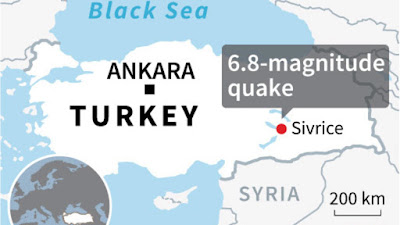

By Mantasha - Jul 28, 2025
Google faces criticism for failing to warn 10 million people in Turkey about an earthquake, with only 469 serious alerts issued prior to the 7.8 magnitude quake. The incident underscores the importance of reliable and timely warning systems for natural disasters, crucial for disaster management and public safety. This oversight has geopolitical implications and highlights the need for comprehensive warning mechanisms to protect communities and minimize economic losses from unforeseen events like earthquakes.

Turkey Earthquake via <a target="_blank" href="https://www.globalawareness101.org/2020/01/turkey-massive-68-magnitude-earthquake.html">globalawareness101.org</a>
LATEST
Google recently faced backlash after it was revealed that the company failed to warn around 10 million people in Turkey about the severity of an earthquake. The tech giant admitted that it only sent out 469 serious alerts prior to the 7.8 magnitude quake, raising concerns about the effectiveness of its warning systems.
The incident has sparked criticism and questions about Google's ability to provide timely and accurate warnings for natural disasters. With the potential to save lives and minimize damage, early warnings play a crucial role in disaster management. The failure to notify a significant portion of the population in Turkey highlights the importance of reliable warning systems in high-risk regions.
Geopolitically, the oversight by Google has implications for public safety and disaster response strategies. In times of crisis, access to timely information can mean the difference between life and death. Experts emphasize the need for comprehensive and robust warning mechanisms to mitigate risks and protect communities from unforeseen events like earthquakes.
The lack of adequate warning in Turkey also raises concerns about the economic impact of natural disasters. Insufficient preparedness could result in significant financial losses for individuals, businesses, and the government. Moving forward, stakeholders are expected to push for improvements in alert systems and disaster response protocols to enhance resilience and minimize the impact of future catastrophes.